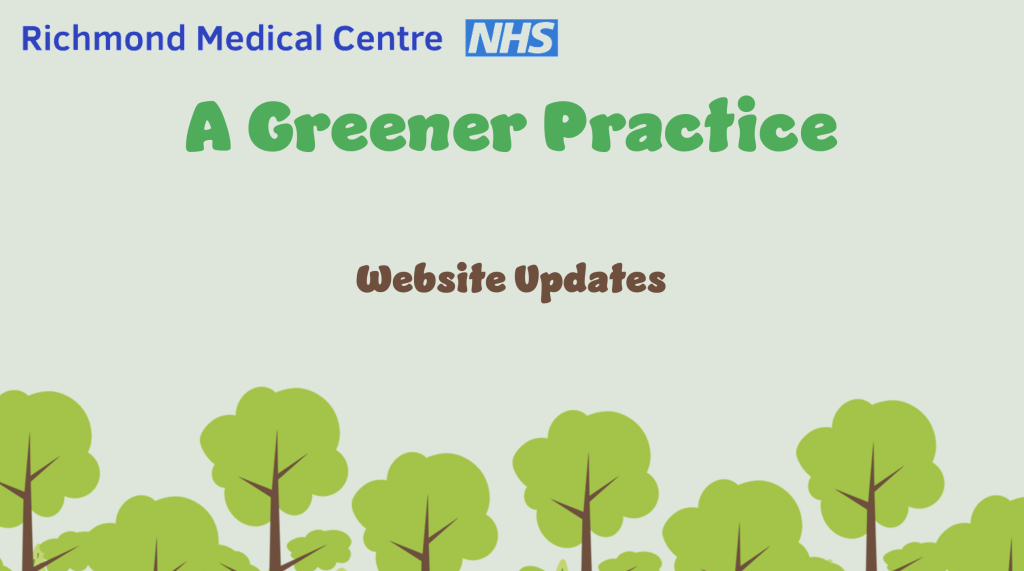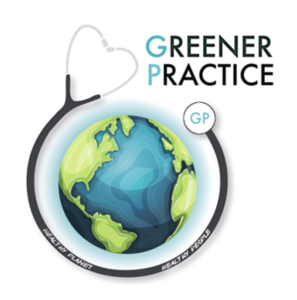Greener Practice
Staff Stories
Dr Honey Smith, GP
For many years I knew I needed to be more active but didn’t want the expense of the gym. I also felt that if I was going to exercise I wanted to be outdoors, and I also wanted to reduce my carbon footprint, so the obvious solution was to cycle to work rather than drive. But I didn’t think I would be able to manage the Sheffield hills!
Eventually I plucked up the courage to buy a bicycle, through the salary release scheme, which made it quite a bit cheaper. My first trip had me walking for several uphill portions of the journey, and I arrived at work with legs like jelly. I had to pull myself up the stairs by my arms! Just 2 weeks later I could manage all the hills and was enjoying the 6 mile commute. Within no time that wasn’t enough cycling for me, and I now cycle to my second job in Chesterfield. People who have known me a long time would be very surprised that I have taken up cycling, as I was quite a lazybones when I was younger and didn’t undertake any exercise beyond a reasonably brisk walk!
I love my ride through the Derbyshire countryside, and I cycle and walk for pleasure at weekends too. It is hugely de-stressing to spend time in the countryside and get the worries of the week in perspective. I’d recommend it to anyone (and my patients will know that I frequently do!). There is really strong research evidence for the beneficial effects on physical and emotional health for exercise in nature.
If you’re nervous about cycling on roads, you could enrol on a free PedalReady course www.pedalready.co.uk to teach you advanced skills for staying safe on a bicycle. That made me far more confident and competent.
CycleBoost Sheffield www.sheffieldcycleboost.org loan out electric bikes free for people to try, so if you’re not sure about cycling you could give it a try that way.
Alternatively, just get out for walks in nature, whatever you can manage – it costs nothing and is a fantastic way to help your physical and emotional health.
“Having a walk on a lovely sunny day in the countryside listening to the nature around us or at local country parks is a lovely way of clearing your head and feeling fresh. Also meeting people and talking along the way makes it even more enjoyable” – reception
Staff Stories
“Woodland walk is a very good activity to do for people with anxiety, depression, work related stress and any other mental health issues.
I was given a leaflet by my doctor to go online, which I did, and I found it very helpful. You can do activities online or you can do various outdoor and local activities walking, group sessions..
I benefited from the woodland walk with people that are in the same or similar situation so you can walk and chat, it takes your mind off every day life and gives your mind time to relax and enjoy the day.
I benefit from it a lot and it does help especially if you’re having a down day as well and I’m really glad I looked at the website.”
“As an elderly person living on my own I have found during these trying times that keeping my mind busy is a great help. I do quite a few hobbies, knitting, painting and the best thing is being able to go outside and work in my garden and go for a walk in the park keeping at a safe distance, also having an allotment is a great help it keeps you mentally stimulated and helps with well being.
Hopefully in the not too distant future we will all be back to a near normal world.”
“Having suffered for years with anxiety and low self-esteem I have now found that running for on average 5 miles a day or simply going for an hours walk has helped me feel more positive about myself. About 5 years ago I was prescribed anti-depression tablets but after a short time I decided that they were not for me and as I had been a runner in my youth and I was a postman which meant I did a lot of walking. I started running outside but after a while it was affecting my knees so I bought a treadmill and now I use it most days. I feel a sense of achievment when I have completed my run and this feeling can last sometimes long periods or at times a short period but it is always a positive feeling. If anyone is suffering from anxiety I would advise you to find a sport which suits you either to do on your own which is the I prefer or with a family member or friend while social distancing, it doesn’t need to cost anything. Running or walking is free”

About Greener Practice
Greener Practice is a network created to encourage action on sustainability in primary care. It was founded in 2017 in South Yorkshire and has since grown to be nationwide- helping to raise awareness of the health benefits of climate action.
At Richmond Medical Centre we recognise the importance of improving our carbon footprint and our effect on the planet, and have recently declared a climate emergency in hope of implementing effective climate action!
To find out more, visit www.greenerpractice.co.uk

What we’re doing to help
To help reduce planetary harms and improve patient care, we’re currently doing the following:
- Working with patients to make sure all their medication is right for them, and considering other measures that might help your health alongside, or instead of, medication, which often have additional health benefits.
- Using rechargeable batteries for medical equipment, where possible
- educating our patients about reducing your air pollution exposure.
- Recycling appropriately and only printing when necessary.
- Running asthma education courses to help children and their parents feel more confident managing their asthma
- Using reusable medical instruments instead of disposable ones
- Only using gloves and couch roll when there is a clinical need
- Some of our staff try to walk or cycle to work when they can, reducing air pollution in your area
What you can do to help the planet and your health at the same time
If you’re interested in helping the planet and your own health at the same time, here are a few things you can do:
- Discuss with your doctor if you’re not using all your prescribed medication. We won’t tell you off! We will have a useful discussion to help you decide what is right for you.
- Reduce your meat and dairy intake, avoid ultra-processed foods, and make sure half your plate is made up of vegetables. The closer you are to a plant-based diet, the better for your health and for the planet, reducing the risk of heart disease, diabetes, pancreatic and bowel cancers.
- If possible, walk or cycle when you need to travel short distances. Active travel is really good for your health in countless ways, andreduces air pollution for you and your community. If you can’t do that, use public transport to reduce air pollution and carbon emissions in your community.
- Insulate your home, if you can. This will save on energy bills, prevent cold-related health harms (the climate crisis involves extremes of weather, not just hotter summers), and help reduce carbon emissions. Switch off lights, appliances etc to save money and carbon emissions.
- Take walks in nature and appreciate the world around you. There is now really good evidence that activities in nature are good for mental health and help the immune system – particularly activities near water.
- As you get older, think about what care or interventions you would, or would not, want. This will mean we will be able to tailor your care better, and ensure we do only what is right for you.
- If you have asthma, make an appointment if you are using your rescue (blue) inhaler 3 or more times a week, because this may mean your asthma is not well controlled. Ensure you are making full use of your inhalers and returning them at your local pharmacy once they’re empty, so that the greenhouse gases in some inhalers are properly disposed of.
